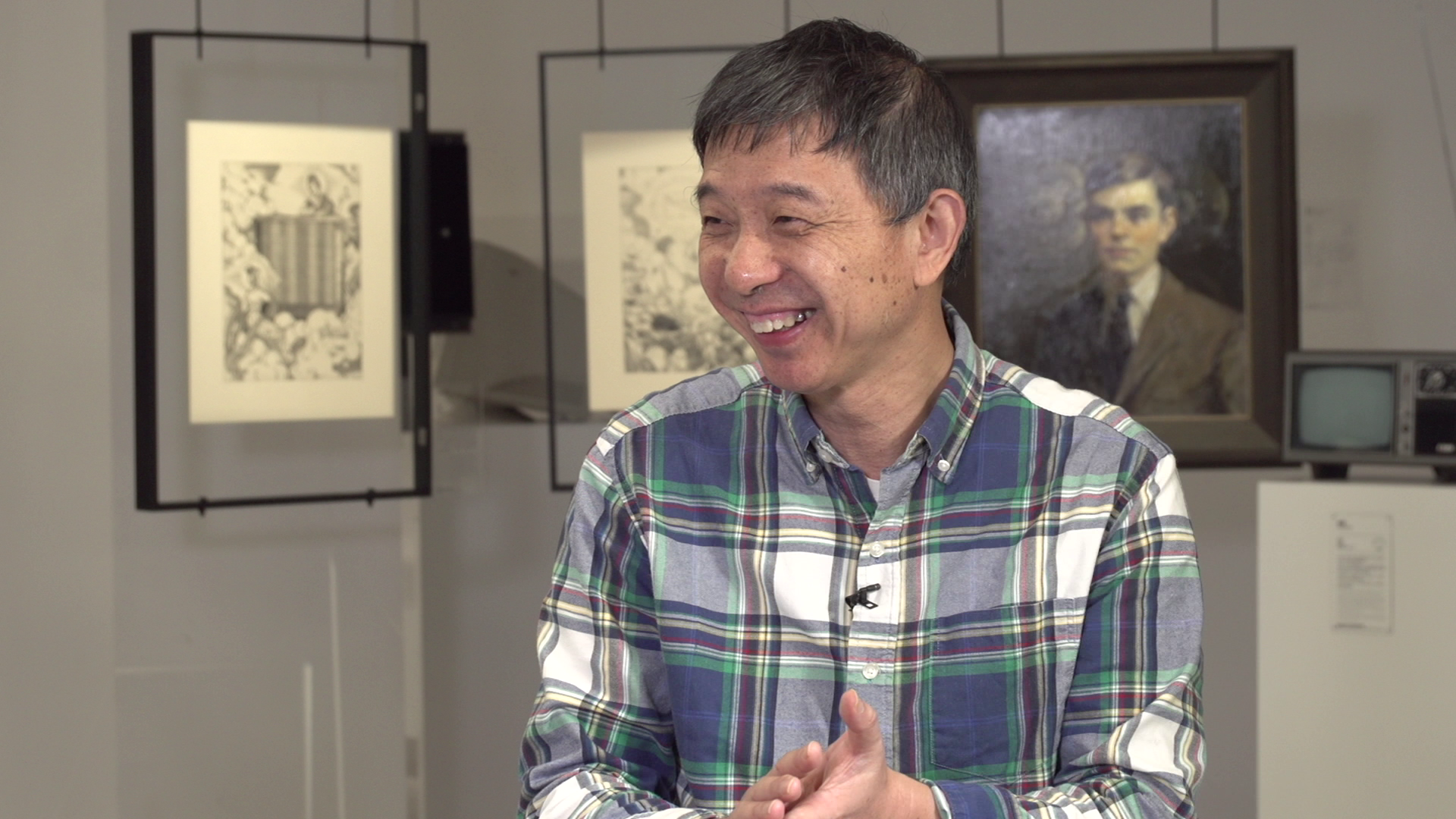 CLOUD
CLOUD
 CLOUD
CLOUD
 CLOUD
CLOUD
In the relatively short space of 18 years, Alibaba Group Holding Ltd. has grown from 18 people led by former English teacher Jack Ma to an ecommerce powerhouse with more than 50,000 employees and annual revenue of $23 billion. But it was no easy path, as Ma’s first two web-based businesses failed before he hit on the idea that he could improve society by creating an online marketplace in China.
Ma’s story is not so much about innovation as it is about inspiration, the notion of overcoming obstacles to create something that has a major societal impact. The same approach infuses the Museum of Inspiration in Hangzhou, China, which takes Alibaba visitors through a journey more focused on what lies ahead than what has come before.
“It’s really about the great inventions and human contributions to the whole society,” said Dr. Jian Wang (pictured), chairman of the Alibaba Group Technology Steering Committee. “We do talk about the past, but we want to make sure that people think about the future.”
Wang visited theCUBE, SiliconANGLE’s mobile livestreaming studio, and spoke with host John Furrier at the Museum of Inspiration during the recent Computing Conference in China. They discussed the themes captured by the museum exhibits, the integration of technology into daily life, a major project to improve traffic in cities, and the challenge of meeting user demand in China’s fast-paced society. (* Disclosure below.)
The newly created museum has a display theme that walks visitors through time. A lot of people may take technology for granted in these superconnected times, so one of the museum’s goals is to remind visitors of both great inventions and important contributions to society.
Another important theme is to reinforce the notion that science and technology are actually two distinct disciplines that, when blended together, can revolutionize the world. “I really wanted people to see two sides of the coin — science and technology — instead of mixed together,” Wang said. “Just like zero and one. When they are put together in a computer, amazing things happen.”
Integration of technology into life is a common theme reinforced by the exhibits. The museum traces back technology’s origins, personalizing the history of the human as the world’s first computing device.
The lessons and history of human development form the model that mirrors the evolution of the internet, encapsulating the growth stages of communication, social interaction and collective effort. These chapters also point toward the evolution of human thought, an important component in technology’s past, and are instructive in potentially predicting the future.
“Tracing the origin of ideas is actually very important if you’re thinking about technology,” Wang said.
Alibaba’s Ma spoke at The Computing Conference about industrial transformation, drawing on the intersection of art and science to spawn new creativity. The gathering in Hangzhou was not devoted solely to technology, including a major artistic component in the form of a music festival. A key common principle behind Alibaba’s e-commerce business is to change human life in positive ways.
“Computing is not just technology,” Wang said. “It’s something that changes the way of life for people.”
Alibaba’s City Brain project is an example of how the company is seeking to use the power of technology and improve one of the most consistent problems in urban living: traffic. By cultivating the vast database of information gathered from cameras and sensor-driven devices installed in many cities, the company hopes to apply insights to better manage stoplights and improve traffic flows.
This initiative also highlights how Alibaba views data not as a mass of information to be stored in a machine, but rather as a vital benefit to be managed for the common good. “The fundamental thinking for City Brain is that we finally realized that data resource is the most precious resource for the city, instead of land and the water supply,” Wang said. “We finally realized that data is part of the city instead of part of the IT system.”
The cloud evolution and ambitious projects, such as City Brain, have put pressure on Alibaba to keep pace with a rapidly changing technology landscape and a user base that is moving at lightspeed themselves. The “digital generation” has been supplanted by the “online generation,” which is used to receiving everything from movie tickets to delivered meals at the tap of the mobile device screen.
Alibaba’s executives say they understand that in China’s rapid-paced culture, if they don’t move quickly enough to meet user demand, they will lose business to someone who will gladly do it for them. “The users in China, they move very fast, probably faster than anywhere else around the world,” Wang said.
The company’s view of the technology world and its history, as captured in the Museum of Inspiration and the Computing Conference, reflects a spirit of pride in being one of the major players in the digital universe. There’s also a notable feeling that, despite the speed of user demands and global competition, the ecommerce giant is making its own contribution to the world’s industrial history.
“Alibaba is the place where you can touch every aspect of technology,” Wang said. “It’s really exciting in your life if you can see the internet plus computing plus data together. It’s a very exciting era.”
Here’s the complete video interview, and there’s more SiliconANGLE and theCUBE coverage of The Computing Conference. (* Disclosure: Coverage of the Alibaba Cloud Computing Conference is sponsored by Intel. All content is controlled by SiliconANGLE, and neither Intel or Alibaba have editorial influence on the coverage.)
THANK YOU